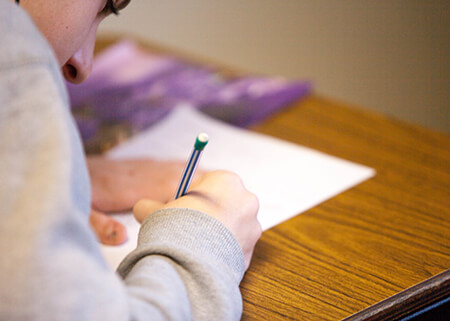When you are a teacher, you expect to do exactly what your job title suggests: Teach. At the most basic level, this includes using classroom management to mentor the next generation of academics. Quite often it starts with their multiplication tables later leading to more complex assignments, such as research papers or dissertations, for example. Many teachers, though, do much more than this. They imprint themselves in their students’ memories by offering advice or using classroom management to teach them valuable life lessons. The best teachers are those that go above and beyond to be there for their students. That being said, though, learning isn’t as one-way as we tend to think. Oftentimes, students can impart lessons on their teachers and their impact is only made stronger by the fact that these lessons are unexpected most of the time.
Patience and Understanding Can Go a Long Way
One of the first things your students will teach you is that they aren’t all the same. This will show in a variety of ways — their behavior in the classroom and how they choose to study, for example. The main thing that you can learn from this is that no two of your students will learn alike. Thus, on the upside of things when teaching them how to write an argumentative essay outline each student will use unique resources.
As such, you should be patient with your students as you go along. Where one student might catch onto what you are teaching immediately, another student may need you to repeat the main idea of the lesson a few different times in a few different ways.
By staying patient and understanding in the face of these differences, you will stand out in their eyes because you gave them the time and tools to learn efficiently. In addition, when you teach with patience, you are more likely to see a greater number of successful students. By considering each student’s individual needs, you are also more likely to foster respect which usually translates into a more well-behaved classroom.
However, you can also use this idea in reference to yourself. Throughout your life, you will constantly be learning new skills. Sometimes, these skills won’t be ones that you catch onto immediately. If you give yourself time to learn and approach these new skills, you are more likely to stick with the lesson as well as learn and retain that skill in the long run.
Be Open To New Ideas
Just as you should be willing to take a little extra time to help your students, you should be ready and willing to change your plans to make your lessons more effective. For example, if you plan an activity for a lesson but none of your students are understanding or learning from it, you shouldn’t just push through with the activity. If something isn’t working, you should be flexible enough to switch gears and move to an activity that works.
This flexibility can be taken outside of the classroom too. In life, there are plenty of situations in which your plans won’t work or outside factors will completely derail them. Being able to recover from these events is a valuable life skill that you can use to keep your daily life on track.
Have a Plan
Even though you should be flexible, that doesn’t mean you should fly by the seat of your pants every lesson. If you can’t tell your students what is going to happen next when you are going through the day, they probably won’t respect you as much and it’ll probably make it harder for them to learn.
So, it is crucial that you have a plan in what you do. Once in a while, it can be fun to take a day off or a vacation in which you wander with no plan. But in day-to-day life, a plan is important. It helps you get more done and it can help you to maintain your schedule.
Keeping a schedule can be crucial for some students as well. If you teach a student that places on the autism spectrum, for example, being able to tell them what’s going to happen throughout their school day can help them tremendously.
In terms of having a plan versus being flexible, neither option can really exist without the other. You can’t come in with no plan and just make up your lessons as you go along. On the other side of the coin, though, you can’t be stuck so rigidly to your plan that you aren’t able to change when a surprising situation comes up.
Tough Love Is Sometimes Necessary
When you start teaching, you naturally want to be a teacher that all your students will love. In your mind, it can be easy to think of this as being kind and caring towards your students and you’re right.
On the other hand, though, you don’t want to be a pushover either. If your students feel that you can’t stand up for yourself and the rules in your classroom, or that you won’t make them do what they need to succeed, they aren’t going to respect you. This quickly teaches any teacher that the kindness and compassion has to be paired with some discipline to earn respect and keep a classroom in order.
Everyone Has a Chance
A dangerous misconception is that not all students have the same chance. One student might have more resources and a natural talent for certain subjects while while other students might have more trouble in school or have a disability that makes learning more difficult. On a more technical scale, one student might have a higher IQ than another.
However, these differences don’t mean that one student has more of a chance than another student. You might find that a student that acts up often ends up with straight A’s. Of course, some students might find they need to study harder than their counterparts to achieve the same grades but that doesn’t mean they are any less likely to succeed.
As you see this unfold in the classroom, you will learn that you can’t judge someone right away. Even those students and people you come across that might seem less accomplished than others in their demographic might hold just as much potential as those in the top of their field.
Dreaming Big Isn’t Bad
There are certain things that children and young adults have that are sometimes tempered in adults that are further in their careers. One of these things is the wonder of a child and the big dreams that comes with that. This is because where children and young adults have huge dreams about their futures, adults who are making their way into their careers can get lost in a cycle of paychecks and bills.
Being around students, though, it can be hard to ignore their optimism. There are two ways that you can take this environment: You can become cynical in the face of their optimism or you can catch onto its infectiousness.
The lesson to take away here, as cliche as it sounds, is that your students can teach you about the wonder and opportunity in the world. This is because young people with dreams don’t settle as much as people who have established themselves in a career. Constantly being around people who are continuously striving for more reminds you that there is always more.
This is important as a teacher, because even if you choose to stay in the same position at work, that differs greatly from feeling like you’re working in the position you’re in because you’re stuck there. If you’re a teacher because you love teaching, you’re going to be better at your job than if you feel like you’re teaching for a paycheck alone.
Some Things Take Time
As we have already discussed, studying and hard work can go a long way. One thing that you will quickly see with your students is that learning a subject isn’t an instant event. It takes time for some students to study and understand a subject to the point that they can claim real comprehension and pass a test.
You can learn from this that certain things take time to accomplish. Not taking to a new skill or experience immediately isn’t a sign of failure. Just as you give your students time, you need to give yourself time to accomplish your goals.
For example, if you want to earn more money in your field or further your own education, you can’t expect it overnight. If there is anything a student will teach you, it’s that certain goals can take years to work toward. Take an elementary school student, for example. If you ask them what they want to be when they grow up, they have an idea. That idea might change but they have a goal — a teacher, an astronaut, or something. These are ideas from students who know these goals are years off.
That time period may not mean a lot to an elementary school student, but as you watch these students grow, many of them retain big dreams. High school students apply to college knowing that their career choice are at least a few years away. In all likelihood, you will watch these same students get rejected from their first and second choice colleges and still work toward their degrees.
This determination and resilience doesn’t have to end when school does, though. You can keep these ideals in mind as you work toward any goal you have in life.
You’re Never a Total “Expert”
Finally, students will teach you that you will never be a total expert in your field. No matter what you teach, there is always the potential to learn more. At no point in your career, will you have the answer to every question that comes your way and your students will remind you of that with their endless questions and curiosity.
The takeaway from this is not that you are failing the subject you teach in some way. Instead, the takeaway is that you should never be satisfied with the knowledge you have. If you want to serve your students the best and be as effective in your field as possible, you should keep your curiosity in the forefront and continue to learn as much as possible.
Conclusion
As a teacher, you spend your days teaching students what they need to know so they can be prepared for the future. However, teachers can end up learning just as much as they teach.
Students might not hold lectures or write lesson plans, but they will impart lessons on you as you go. As you teach your students, the way they act and react to you might surprise you. From each of these reactions to you and your teaching, you will learn an important lesson like the ones we have looked at today.






